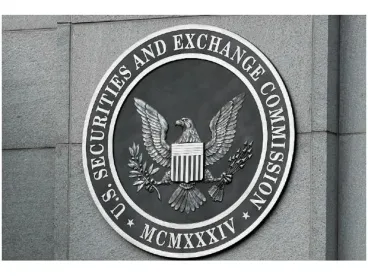On Feb. 16, the SEC announced settlement of parallel civil and criminal actions involving violations of the Foreign Corrupt Practices Act (FCPA) by Massachusetts-based tech company PTC, Inc. As part of the agreement, PTC and two Chinese subsidiaries agreed to pay more than $28 million in fines, interest and disgorgement for providing Chinese officials with vacations, improper gifts and entertainment that were disguised as legitimate business expenses. Specifically, PTC agreed to pay $13.6 million in disgorgement ($11.858 million) plus interest ($1.764 million) while its two Chinese subsidiaries agreed to pay a $14.54 million fine as part of a non-prosecution agreement.
In related action, the SEC also announced its first deferred prosecution agreement (DPA) with an individual involved in an FCPA investigation. Yu Kai Yuan, a former employee at one of PTC’s Chinese subsidiaries, benefited from the high level of cooperation he provided to the SEC during its investigation. Charges against Yuan will be deferred for three years.
Through its investigation, the SEC alleged that from at least 2006 to 2011, PTC China subsidiaries provided improper travel, gifts and entertainment totaling almost $1.5 million to Chinese government officials who were PTC customers. PTC, through third-party agents, frequently arranged overseas site-seeing trips in conjunction with visits to a PTC facility. Generally, following one day of business activities at PTC’s Massachusetts-based headquarters additional days of site-seeing visits lacking any business purpose, guided tours, golfing and other leisure activities were paid for by the company. The remainder of these trips was typically spent at destinations like New York, Honolulu, Las Vegas and Los Angeles. Improper gifts including cell phones, iPods, GPS systems, giftcards, wine and clothing were also provided to Chinese government officials. PTC and its subsidiaries typically used third parties to reimburse the officials’ expenses, then disguised these improper payments as commissions or business expenses on company books.
In assessing its investigation, Kara Brockmeyer, chief of the SEC Enforcement Division’s FCPA Unit, said, “PTC failed to stop elicit payments despite indications of potential corruption by agents working with its Chinese subsidiaries, and the misconduct continued unabated for several years.” The SEC’s order found that PTC had violated anti-bribery, internal controls, and books and records provisions. In negotiating settlement of the investigation, the SEC did take into consideration PTC’s self-reporting and significant remedial steps the company took thereafter.
With respect to Mr. Yuan, a 47-year-old Chinese citizen living in Shaghai, the SEC claimed his actions caused PTC to violate books and records and internal control provisions of the FCPA. In assessing its decision to enter into the DPA with Mr. Yuan, the SEC asserted:
“DPA’s facilitate and reward cooperation in SEC investigations by foregoing an enforcement action against an individual who agrees to cooperate fully and truthfully throughout the period of deferred prosecution.”
PTC, in responding to the investigation, claimed:
“PTC has implemented extensive remedial measures related to these matters, including the termination of the responsible employees and business partners, the establishment of an entirely new leadership team in China, the establishment of a dedicated compliance function, and other enhancements to compliance programs.”
This matter represents yet another instance where a company doing business in China has engaged in the payment of improper benefits to government officials to obtain a business advantage. It represents another example where a parent company has failed to conduct monitoring and oversight of subsidiaries and third-party partners. This further illustrates the need for robust internal enforcement of compliance mandates with foreign partners and subsidiaries. The willingness of the SEC to enter into deferred prosecution agreements with individuals involved in FCPA investigations signals a new tool the agency has now added to its enforcement arsenal.




 />i
/>i
